Homeopathic Care
Virtual Consultations
Matching the uniqueness of an individual with the uniqueness of a the treatment plan
✺
Matching the uniqueness of an individual with the uniqueness of a the treatment plan ✺
Since the 1800s
Homeopathy is a system of holistic and natural medicine that was developed in the late 18th century by German chemist and physician Samuel Hahnemann. Homeopathy was developed around the same time as our modern allopathic medical system, but evolved into a distinct field of medicine.
It entails a holistic approach to health and healing, revolving around stimulating your vital life force (also known as prana or qi in other modalities) to heal itself.
Your body knows how to heal.
Sometimes it just needs a little reminder.
Homeopathy is guided by a set of key principles:
-
Homeopathy treats each person as their own unique individual - because that’s exactly what they are. No two people are the same, even if they are diagnosed with the same pathology or condition. This means that each individual requires personalized individualized treatment, which is exactly what homeopathy offers.
-
This holistic field of medicine does not look at symptoms as an isolated issue. Each symptom is taken into consideration within the context of all of your other symptoms and complaints, as well as ones you’ve experienced in the past. We even consider epigenetics and the imprints of generations before you and how they may be impacting you currently.
Homeopathic medicine respects and utilizes the body's expression of symptoms as a guide to finding the matching medicinal substance to support your healing. Every symptom, no matter how small or seemingly obsolete, is of utmost importance in homeopathic care.
-
Simply put, the Law of Similars states that a substance that is capable of producing a symptom is capable of curing that same symptom.
Homeopathic medicine considers the Totality of Symptoms of an individual and matches this symptom picture with a medicinal substance that creates that same symptom picture.
This differs greatly from core practices within the allopathic medicine (the conventional Western medical you’re likely familiar with) that relies on suppressive medicines like anti-depressants, anti-histamines, anti-biotics, etc. that are often used.
-
The concept of using the smallest possible dose is central to homeopathy. Homeopaths aim to give the minimum dose possible to initiate healing, but no more.
The objective is to induce symptoms that are only marginally more pronounced than those already experienced, thus simulating the healing response in alignment with its natural course. What this is essentially doing is allowing your symptoms to be flushed out of your system by the means of your immune system and vital life force.
-
Homeopathic remedies are highly diluted forms of substances potentized by succussion - a process of vigorous shaking and striking of a solution on a hard surface. Hahnemann, the founder of homeopathy, believed that the curative power of a substance is enhanced, not diminished, by dilution and succussion.
The energetic imprint of the substance is retained in the remedy, even at extremely high dilutions, but any risks associated with the medicinal substance are removed. This allows us to harness the important medicinal aspects of typically poisonous substances in their crude state, such as Wolfsbane (homeopathic Aconite), Deadly Night Shade (homeopathic Belladonna) or the Strychnine tree (homeopathic Nux Vomica), without the risks.
Additionally, this method of dilution and succussion makes homeopathic medicine great for children, during pregnancy, or simply individuals that find themselves quite sensitive to substances and treatments.
Here are some reasons that people seek out homeopathy:
This is not an exhaustive list of conditions that homeopaths can help with. If you have any questions about how homoeopathy applies to your specific complaints and conditions, please reach out.
-
✺ Anxiety, depression and other mood disorders
✺ Attention Deficit Hyperactivity Disorder (ADHD)
✺ Emotional healing (grief, trauma, etc.)
✺ Burnout and overwhelm
✺ Low self-esteem or self-worth
✺ Emotional healing (grief, trauma, etc.)
✺ Relationship or sexual intimacy issues
✺ Anger and irritability
✺ Fears and phobias -
✺ Eczema
✺ Psoriasis
✺ Rashes
✺ Allergies
✺ Hair loss
✺ Brittle nails
✺ Ingrown toenails
✺ Fungal infections
✺ Acne
✺ Burns
✺ Skin repair
✺ Unexplained skin complaints (peeling skin, hives, etc.) -
✺ Menstrual cycle complaints such as painful cycles, amenorrhea, cycle irregularities, heavy menstrual cycles, endometriosis, Premenstrual Syndrome (PMS), Premenstrual Dysphoric Disorder (PMDD) and Polycystic Ovarian Syndrome (PCOS) and more
✺ Menopause (hot flashes, irritability, sleep disturbances, etc.)
✺ General hormone imbalance and complaints
✺ Infertility and conception challenges, and miscarriage prevention and recovery
✺ Pregnancy related complaints (nausea, hyperemesis gravidarum, pain and discomfort)
✺ Labour support (fear, stalled labour, weak contractions, etc.)
✺ Postpartum recovery (physical and emotional, c-section recovery)
✺ Birth trauma and effects of obstetrical violence
✺ Breastfeeding support (mastitis, milk supply, etc.)
✺ Vaginal infections
✺ Complaints from hormonal birth control
✺ Impotence
✺ Libido complaints -
✺ Failure to thrive
✺ Vaccine injury
✺ Frequent colds and flus
✺ Skin conditions
✺ Allergies
✺ Asthma
✺ Behavioural complaints
✺ Sleep disorders and night terrors
✺ Earaches
✺ Sore throats -
✺ Fibromyalgia
✺ Chronic Fatigue Syndrome
✺ Chronic pain
✺ Seasonal allergies
✺ Impaired immune system function and frequent colds and flus
✺ Headaches and migraines
✺ Fatigue and low energy -
✺ Irritable Bowel Syndrome (IBS)
✺ Loose stools and diarrhea
✺ Constipation
✺ Hemorrhoids
✺ Bloating
✺ Microbiome imbalance
✺ Food poisoning -
✺ Injuries and broken bones
✺ Chronic pain
✺ Arthritis
✺ Gout
✺ Joint pain and inflammation
✺ Old injuries
✺ Headaches and migraines
✺ Muscle tension and cramps -
✺ Sleep disorders (insomnia, restlessness)
✺ Allergies and sensitivities
✺ Immune system support
✺ Undiagnosed conditions
✺ Detoxification
✺ Medication injury
✺ Vaccine injury -
✺ Homeoprophylaxis
✺ Immune system support
✺ Hygiene and dietary recommendations for a long and healthy life
✺ Pre-operative care -
✺ Supporting your body before and after any procedure or operation
Reproductive Homeopathic Care
Homeopathy is a powerful tool for reproductive health, offering support for menstrual complaints, fertility support and issues, pregnancy, postpartum, birth puberty and menopause.
To learn more about how homeopathy can help at every stage of your reproductive journey, visit our dedicated Holistic Reproductive Healthcare Page.
Book your appointment
✺
Book your appointment ✺

meditation for homeopathy
What to Expect in the Process
In the realm of healing, homeopathy stands apart from allopathic approaches by focusing on individualized treatment based on the principle of "like cures like" and the belief that the body has the ability to heal itself when supported with gentle remedies tailored to each person's unique constitution and symptoms. This means that the homeopathic appointment is a little bit different than you might be used to because the appointments are much longer, and in great depth.
Learn More:

Treating the whole person, and not just their ailments.
Homeopathy emphasizes the strange, rare and peculiar.
It emphasizes what is characteristic and unique to you.
You might be asked to consider and explain things at depth that you may not expect to matter so much, but in the homeopathic context, it does.
Perhaps some unexpected things you’ll be asked about
-
Specific sensations help us differentiate from one remedy or another. It’s helpful to know exactly what you feel, where you feel it and what makes it better or worse.
No only do we want to know that you feel pain, but we want to know if it’s an aching, gnawing, pressing, tearing, stabbing, or shooting pain. We want to know if it extends anywhere, if anything else happens with it and what the exact circumstances it arises in.
With every complaint - whether physical, emotional or mental - will be accompanied by an inquiry into what exactly is it that you feel.
-
Modalities in homeopathy are the things that make you feel better, and the the things that make you feel worse. We call them ameliorations and aggravations.
Do you have a headache that feels like there is so much pressure that your head is going to explode, but is better by pressing on it or wrapping it up tightly? Does that headache feel better in a dark room, but is aggravated by light? Is that pressure relieved if you cry, or eat?
Do you have back pain that is better by laying on something hard? A sore hip that is better by lying on it?
Do you have pain in your knees that is initially worse by movement, but continued movement makes it feel better?
These are just a few examples of how modalities help us create a complete picture of the totality of your symptoms.
-
Sleep of course plays a huge role in health and functioning. We want to know how well you’re sleeping, how long it takes you to fall asleep, and the position you sleep in. We want to know if you like the windows closed or open, if you stick your feet out of the blankets, and if you snore, sleeptalk or sleep walk.
We also want to know about your dreams. Are there recurring dreams that you have? Do the emotions and feelings of your dreams linger throughout the day? Do you dream about snakes? Or falling into water?
Homeopathy is one of the few modalities that really wants to know the intricacies of how you sleep and dream.
-
Fears and phobias are another really important thing in homeopathy that helps guides homeopaths to choosing the correct remedy for the individual.
We want to know if you’re claustrophobic, how you feel about big crowds, if you’re afraid of getting sick, or if you’re afraid of death. We want to know what kinds of animals you’re afraid of and if there are any objects that trigger fear in you. Are you afraid of the future? Of failure? Do you have fear that seems completely cashless?
Big and small, significant and trivial, it matters!
-
Do you notice that you feel a certain way when it’s cloudy? Does a certain symptom rear its head before a storm? Does something specific happen in the sun? Do you “run hot” or find yourself always freezing cold? Do you stick your feet out from the covers? Do you feel a chill in the base of your spine? Does it move up, or down your body?
These are just some examples of some of the things that homeopaths want to know. This tells us a lot about what remedy you might need.
-
We want to know your “weird” symptoms. The symptoms that make you kind of go “huh?.” The symptoms that don’t seem to make a lot of sense. The symptoms that other healthcare practitioners turn a blind eye to.
The Repertory (the big book of symptoms that homeopaths use of find remedies for you symptoms) has thousands, if not millions of symptoms in it. And some of them might are a little bit “weird.”
Book your appointment
✺
Book your appointment ✺



